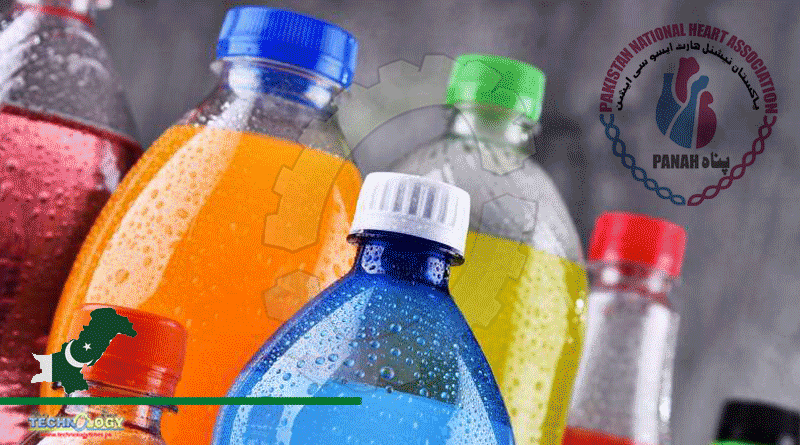Consumption Of Sugary Drinks Is One Of Major Causes Of Obesity & Its Related Diseases, Increasing Risk Of Type 2 Diabetes, Hypertension

Pakistan ranked the 4th highest burden of diabetes worldwide with 19.4 million cases in 2019 as per International Diabetes Federation. The excess consumption of sugary drinks is one of the major causes of obesity and its related diseases, increasing risk of type 2 diabetes, hypertension, liver and kidney damage, heart disease, and some types of cancers. This has been shared during the webinar organized on Friday by National Scaling Up Nutrition (SUN) Secretariat, Ministry of Planning, Development and Special Initiatives in collaboration with Global Health Advocacy Incubator, SUN Academia and Research Network and Pakistan National Heart Association.The speakers highlighted the harmful effects of sugar sweetened beverages on the health of people who regularly consume such drinks. The webinar was attended by representatives of academia and research institutions, policy think tanks, government departments, UN agencies, civil society organizations and media.
While speaking to the webinar, Nazeer Ahmed Deputy Chief and SUN Focal Point, Ministry of Planning, Development and Special Initiatives mentioned that obesity is rising in the country at alarming rates which is a gateway to Non Communicable Diseases (NCDs). He said that Pakistan Dietary Guidelines for Better Nutrition have been published in collaboration with all relevant government and non-government organizations. It provide clear guidelines about the dietary practice and healthy lifestyle, he added. He said that an urdu version of the guidelines will be published soon for easy understanding of common masses. “We are committed to take all possible measures to reduce obesity including reduction of consumption of sugar sweetened beverages through policy changes.” Dr. Sumaira Nasim, Assistant Professor at Dow University of Health Sciences Karachi said that a single (330ml) can of soda contains more than 9 to 11 teaspoons of added sugar, which is almost equivalent of the maximum recommended daily intake by WHO.
She said, early evidence indicates that sugar sweetened beverages may have potentially addictive properties for adolescents and young adults. She said, drinking just one soda a day increases the likelihood of being overweight by 27% for adults and 55% for children. Professor Dr. Shahzad Ali Khan, Head of the Department of Public Health at Health Services academy Islamabad said, evidence from Mexico, Australia, South Africa, United Kingdom and other countries suggests that imposing tax on sugary drinks is an effective strategy to reduce its consumption and generate revenue for government which could be spent on sustainable health and nutrition programs. He shared that Pakistanis are spending more than Rs 525 billion annually on the purchase of carbonated beverages, juices and energy drinks. He said that health levy bill approved by the cabinet in 2019 was a good step by the government. The FBR and Ministry of Finance should expedite its approval from National Assembly and also consider increasing Federal Excise Duty on sugary beverages.
Munawar Hussain, consultant at Food Policy Program by Global Health Advocacy Incubators said that increased consumption of sugary drinks is a threat to national development due to increased health care costs and hospital expenditures, in addition to an unhealthier workforce. He said that according to International Diabetes Federation, Pakistan ranked the 4th highest burden of diabetes worldwide with 19.4 million cases in 2019. These cases could significantly be prevented by reducing consumption of sugar sweetened beverages. Sana Ullah Ghumman General Secretary PANAH, while speaking to the webinar requested to expedite the implementation of health levy bill. He said that the health levy bill covering tobacco and sugar sweetened beverages will generate more than 55 billion annually. This will be a win win situation and government will be able to fund sustainable health and nutrition programs with the revenue generated.
Badar Uzaman, Program Policy Officer at National SUN Secretariat Ministry of Planning Development and Special Initiatives highlighted the objectives of the webinar. Dr. Irshad Danish, Advocacy Advisor at Nutrition International highlighted the role of academia and research institutions in reducing the consumption of sugar sweetened beverages. While referring to recently launched global report “facing two pandemics, how big food companies undermined the health in the era of Covid 19”, he shared few highlights from the report. He said, the report revealed that pandemic has been used as an opportunity to promote unhealthy foods and beverages by big companies. These companies tried coupling solidarity actions with aggressive marketing of junk food and sugary drink brands, which helped polish corporate images. They also tried positioning ultra-processed food and sugary drinks as essential products when they are not healthy foods. “We need to be careful and discourage such actions from these big food and beverage companies.”
This news was origin ally published at Urdu Point
